Chipotle and White Castle are spending over $500,000 a month on ROBOTS to combat labor shortages
>
The rise of restaurant robots is upon us.
Major fast-food chains are employing robots to flip burgers, brew espressos and greet customers – and it is a fraction of the cost compared to paying human workers.
White Castle is testing the Flippy robot at 100 locations and Chipotle uses a one-armed robot to make tortilla chips at 73 sites – both cost $3,000 a month – and Starbucks has $18,000 AI-powered espresso machines in at least 1,200 locations.
As food costs rise and an intense labor shortage grips the US, paying monthly rentals for machines has become a cost-effective option.
The National Restaurant Association recently reported that four in five operators are understaffed and have been since the COVID-19 pandemic hit in 2020.
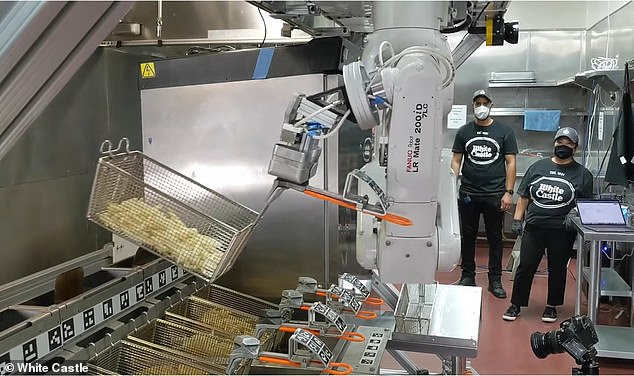
White Castle is testing the Flippy robot at 100 locations. This robotic arm flips hundreds of burgers daily and fries several items on the menu. It costs $3,000 a month for one robot
However, experts are not yet sold and believe it will be a few years before robots take the place of human workers.
David Henkes, a principal at Technomic, a restaurant research firm, told CNBC: ‘I think there’s a lot of experimentation that is going to lead us somewhere at some point, but we’re still a very labor-intensive, labor-driven industry.’
The labor shortages have forced restaurant owners to offer higher wages to attract more staff, which, combined with increasing food costs, is leading establishments to run their banks dry to stay afloat.
But this is where automation comes to the rescue.
Starbucks has rolled out more than $21 million worth of AI-powered espresso makers that runs on the company’s Deep Brew software.
And while it does not make cups of coffee, it can mix brews precisely and does so faster than a human barista.
The same software has also been added to the coffee maker’s drive-thru lanes, which greet customers and take their orders – reducing the number of staff needed in a location.
Miso Robotics, a California-based company, is a major supplier in the industry. Its kitchen robot Flippy is capable of cooking 300 burgers and dropping hundreds of baskets of fries into the fry daily.
The company claims its technology performs food preparation tasks twice as fast as human workers and 30 percent more efficiently.
Flippy 2, the company’s most advanced model, is used in leading American fast-food restaurant chains such as White Castle, Jack in the Box, Inspire Brands (the parent company of Buffalo Wild Wings, Arby’s and Sonic), Wings and Rings and Wing Zone.
While most of those restaurants have one or two locations with Flippy, White Castle announced in 2022 that it added Flippy 2 to 100 locations.
The second-generation Flippy not only flips hundreds of burgers daily but can also fry up potatoes, onion rings and anything else on the menu.
Along with Flippy, Miso Robotics also launched its Chippy.
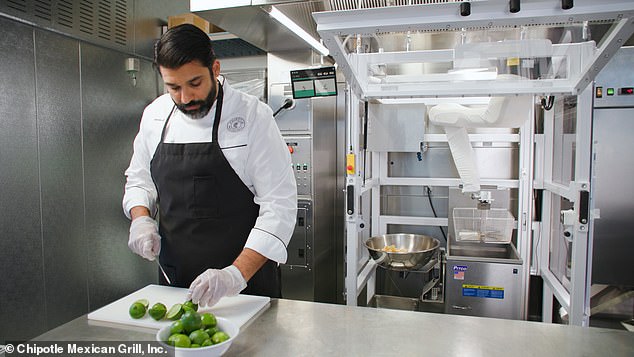

Chippy (pictured at the back of this test kitchen) is another $3,000-a-month machine that Chipotle uses in 73 of its locations to make tortilla chips
This robot makes tortilla chips and is used in at least 73 Chipotle restaurants across the US.
To make sure Chippy creates the perfect tortilla chips, Miso Robotics trained it with Chipotle’s recipe – corn masa flour, water and sunflower oil, a sprinkle of salt and a squeeze of fresh lime juice after cooking.
The Seattle startup Artly began working on its coffee-making robot in 2020 called Jarvis.
The one-armed robot is trained to meticulously pour steamed foam on top of a latte at one of the company’s coffee houses in Washington.
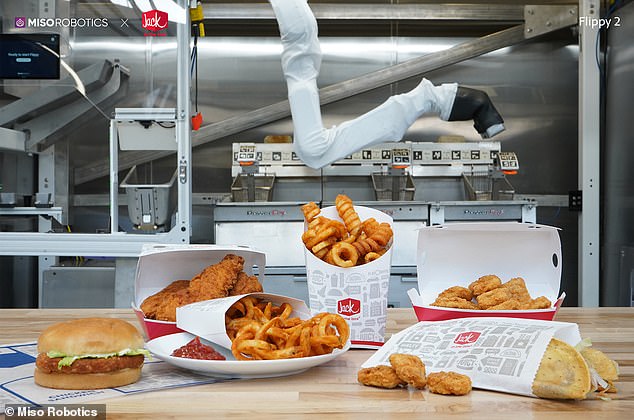

Flippy 2 is used in leading American fast-food restaurant chains such as White Castle, Jack in the Box (pictured), Inspire Brands (the parent company of Buffalo Wild Wings, Arby’s and Sonic), Wings and Rings and Wing Zone
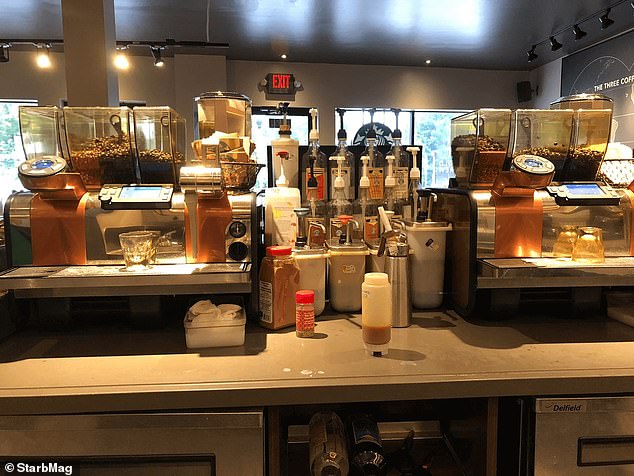

Starbucks has rolled out more than $21 million worth of AI-powered espresso makers that runs on the company’s Deep Brew software
For a coffee shop that would need two or three baristas, Artly needs one staffer and a barista bot like Jarvis.
Another Seattle-based startup, Picnic, offers automation solutions for pizza making – from adding sauce to layer cheese and placing on other toppings.
And Dominos is testing the technology in one of its German locations.
Fast-food chains are not just employing robots to make food and drinks, but they are also using artificial intelligence to take orders.
Taco Bell has also employed AI to take orders, as did Popeyes and Panera Bread.
According to a Popeyes location that uses the technology, drink sales increased by 150 percent as the AI named Tori offers customers high-margin menu items.
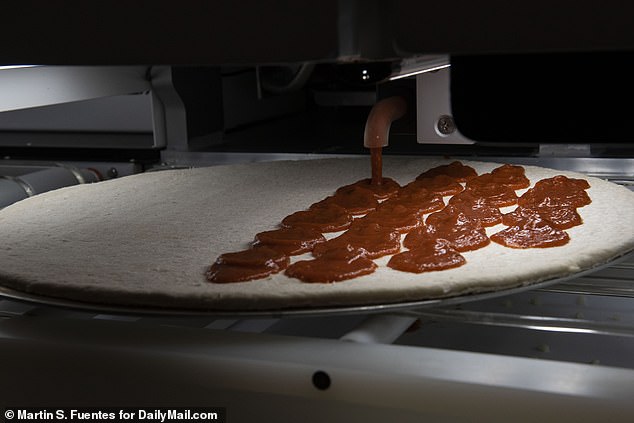

Pizza companies are also looking for help from robots. Picnic is an automated system that does everything from pouring sauce, to layering cheese and adding toppings
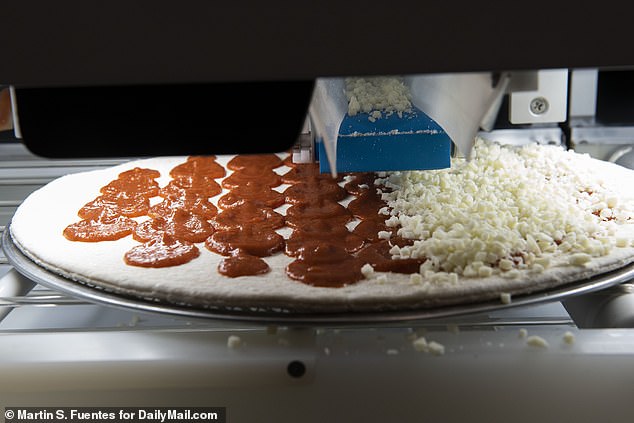

Dominos is testing picnic’s robot at a location in Berlin
Tori, made by OpenCity, also provides correct orders 100 percent of the time.
Labor shortages started because of the COVID-19 pandemic, as many restaurants were forced to close due to strict lockdown orders, and the industry cannot seem to bounce back.
A study by the National Bureau of Economics found that COVID-19 reduced the US workforce by hundreds of thousands.
If you enjoyed this article…
Cleaning hospital ROBOT which sings and tells jokes is branded ‘useless’ by frustrated staff who say it bumps into porters transferring sick patients
New Amazon warehouse robot can handle ONE THOUSAND items per hour
‘RoboBurger’ VENDING MACHINE opens in New Jersey, serving up fresh patties in six minutes for $6.99
